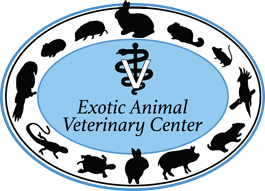Creating a list of foods considered dangerous or toxic to birds can be challenging for a number of reasons. First, the term “bird” is fairly vague. Just as humans don’t necessarily respond to foods like other mammals, there are many differences between the anatomy and physiology of birds belonging to the large, diverse group known as Class Aves. Different species will demonstrate different sensitivities to toxins. Second, although some official reports of toxicity in birds exist, many descriptions are based on personal stories that have not been verified. Third, ‘the dose determines the poison. This means that some food items can be eaten in small amounts or in moderation without problems, but can cause illness or even death in birds when fed in large quantities. Finally, some of the toxicology information used by avian veterinarians is borrowed from dog and cat medicine or even human pediatric medicine.
Better Safe Than Sorry
Avian veterinarians rely on such a wide range of information because it is generally considered best to err on the side of caution. The following list divides potential dangerous foods into three categories:
Do NOT Feed Your Bird
Chocolate: Theobromine and caffeine, which are both classified as methylxanthines, can cause hyperactivity, increased heart rate, tremors, possibly seizures, and potentially death when chocolate is ingested at a toxic dose. As a general rule of thumb, the darker and more bitter the chocolate, the more potentially toxic.
Avocado: All parts of the avocado plant contain the toxic principle, person, and have been reported to be cardiac toxic to birds. Small birds such as canaries and budgies are considered to be more susceptible, however, clinical signs have been observed in other species like ostriches. Clinical signs like respiratory distress usually develop 12 hours after ingestion; death can occur within 1 to 2 days.
Onion and garlic: Onion and garlic toxicity is well recognized in dogs and cats. Concentrated forms, like garlic powder or onion soup mix, are more potent than raw vegetables. Fatal toxicity has been described in geese fed large amounts of green onions as well as one Conure fed large amounts of garlic.
Comfrey: This green leaf herb is popular with some canary breeders, but studies in human medicine have shown it can cause liver damage.
Stone Fruit Pits or Apple Seeds: Apple seeds and fruit pits from cherry, plums, apricots, and peaches contain cyanide.
Foods High in Fat, Salt, and Sugar: Although not technically toxic, unhealthy table foods can cause serious health problems in birds.
Sugar-Free Candies: The sugar alternative, xylitol, has been associated with dangerously low blood sugar and liver damage in dogs.
PROBABLY Should Not Be Fed to Your Bird
Dairy products: Although not technically toxic, bird species that have been tested cannot digest lactose. As the amount of dairy in the diet increases, birds can develop diarrhea.
Can Be Fed to Your Bird with CAUTION
Peanuts: Moldy peanuts or peanut products (as well as corn and other cereal grains) can be contaminated by a toxin-producing fungus.
Certain plants: Birds can eat green tomatoes, potatoes, peppers, and eggplant, however, these plants are all members of the nightshade family. This means that the fruits are safe to eat, but the plants themselves are toxic. By the same token, the leaves of the rhubarb plant contain oxalate crystals, which can cause kidney problems.
Grit: Grit can aid digestion in species that consume whole seeds, like pigeons and doves, however, grit is not absolutely necessary for normal digestion in birds that crack seed hulls, like parrots. Some birds will actually overeat grit when ill, which can potentially lead to intestinal blockage.
A special note on mushrooms: Mushrooms are occasionally listed on toxic food lists. Of course, there are a few toxic species, however, mushrooms that can be eaten by humans are also considered safe for pets. Do NOT offer false morel (Gyromitra) mushrooms. Cooking can render these mushrooms less toxic but does not entirely eliminate the potential danger of death.
References
Brozen R. Gyromitra toxin toxicity. Medscape. Nov 17, 2011. Available at http://emedicine.medscape.com/article/817931overview#a0101. Accessed Aug 7, 2013.
Burger WP, Naude TW, van Rensburg IB et al. Cardiomyopathy in ostriches (Struthio camelus) due to avocado (Persea Americana var. guatemalensis) intoxication. J S Afr Vet Assoc 65(3):113-118, 1994.
Cole G, Murray M. Suspected chocolate toxicosis in an African grey parrot. Proc Assoc Avian Vet 2005 Crespo R, Chin RP. Effect of feeding green onions (Allium ascalonicum) to white Chinese geese (Threskiornis spinicollis). J Vet *Diagn Invest 16(4):321-325, 2004.
Degernes L. Avian toxicology: Common problems. Proc Assoc Avian Vet 2010.
Gartrell BD, Reid C. Death by chocolate: a fatal problem in an inquisitive wild parrot. N Z Vet J 55(3):149-151, 2007.
Hargis AM, Stauber E, Casteel S, Eitner D. Avocado (Persea Americana) intoxication in caged birds. J Am Vet Med Assoc 194(1):64-66, 1989.
Roudybush TE. Nutrition. In: Altman RB, Clubb SL, Dorrestein GM, Quesenberry K (eds). Avian Medicine and Surgery. WB Saunders; Philadelphia, PA: WB Saunders;1997:37-38.
Shropshire CM, Strauber E, Arai M. Evaluation of selected plants for acute toxicosis in budgerigars. J Am Vet Med Assoc 200(7):936-939, 1992.
Stickel F, Setiz HK. The efficacy and safety of comfrey. Public Health Nutr 3(4A):501-508, 2000.
Tully TN. Birds. In: Mitchell M, Tully TN (eds). Manual of Exotic Pet Practice. St. Louis, MO: Saunders; 2008:267.
Wade LL, Newman SJ. Hemoglobinuric nephrosis and hepatosplenic erythrophagocytosis in a dusky-headed conure (Aratinga weddelli) after ingestion of garlic (Allium sativum). J Avian Med Surg 18(3):155-161, 2004.



